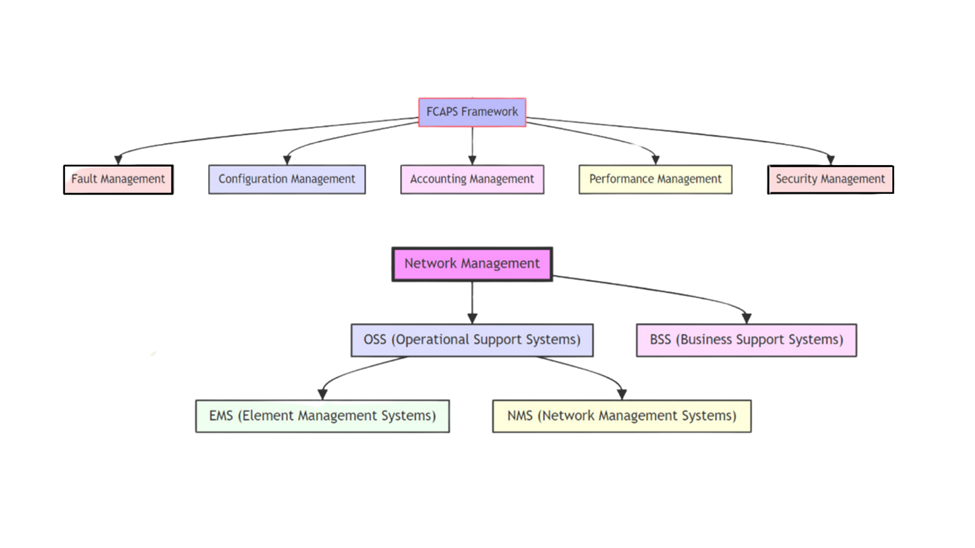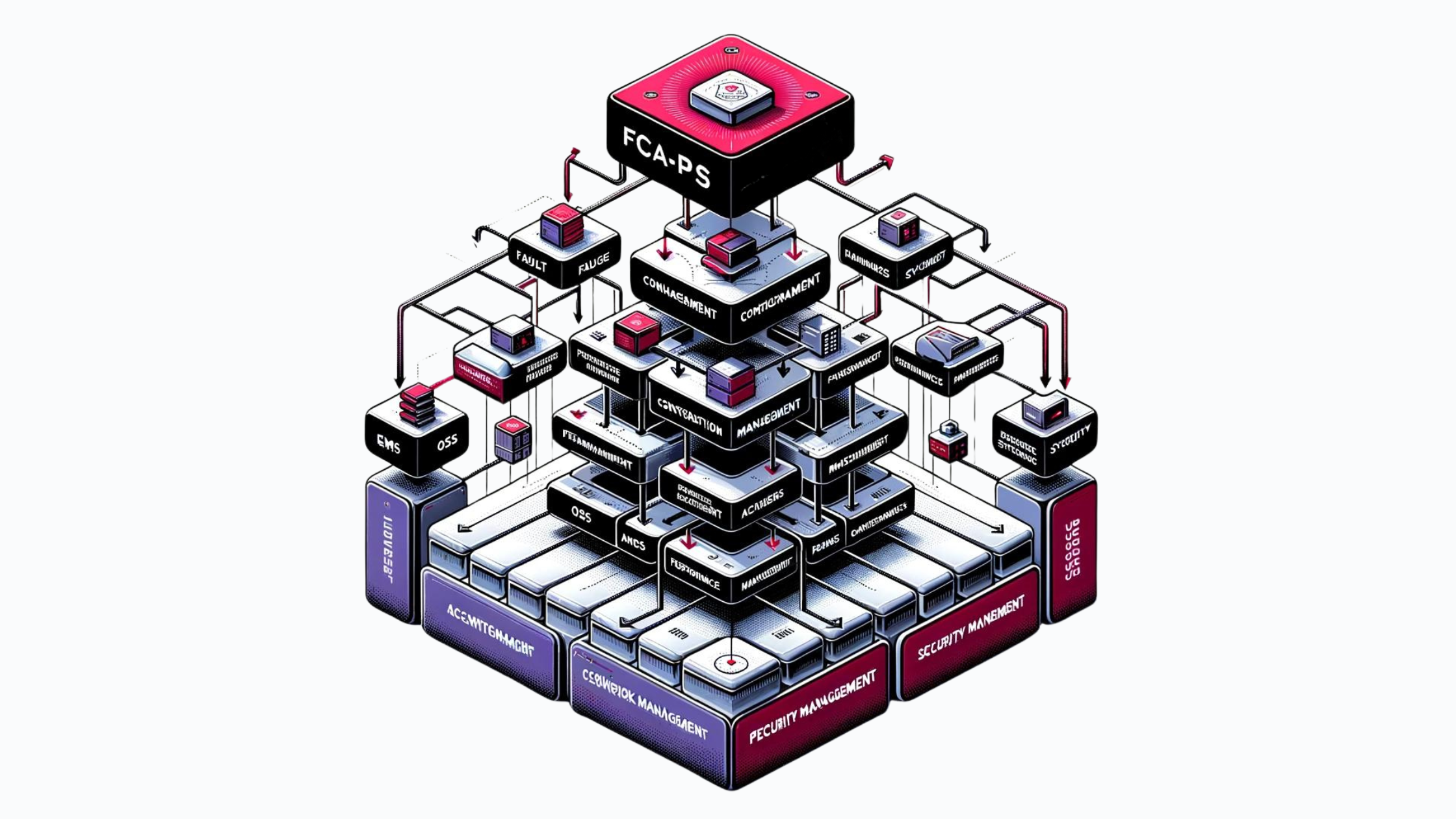In the intricate landscape of telecommunications, understanding the various systems and frameworks that ensure seamless network operations and service delivery is crucial. This blog delves into Operational Support Systems (OSS), Element Management Systems (EMS), Network Management Systems (NMS), Business Support Systems (BSS), and the pivotal role of the FCAPS model in network management.

Operational Support Systems (OSS)
OSS is the technical backbone of telecommunications networks, providing the tools and applications necessary for managing network components, services, and ensuring quality of service (QoS). OSS encompasses a wide range of functionalities, including service provisioning, network inventory management, fault management, and performance monitoring. These systems are crucial for the day-to-day operations of a network, enabling telecom operators to deliver uninterrupted services to their customers.
Element Management Systems (EMS)
EMS are specialized systems designed to manage specific network elements (NEs) such as switches, routers, and base stations. They offer detailed control and monitoring capabilities for individual elements, including configuration management, fault detection, and performance analysis. EMS serve as the first layer of network management, focusing on the operational aspects of individual components within the network.
Network Management Systems (NMS)
NMS operate a level above EMS, providing a holistic view of the network. These systems aggregate data from multiple EMS to monitor and manage the entire network’s performance and health. NMS functionalities include network-wide fault management, configuration, accounting, performance monitoring, and security management. They play a critical role in ensuring the overall efficiency and reliability of telecommunications networks.
Business Support Systems (BSS)
While OSS focuses on operational aspects, BSS deals with the business side of telecommunications. BSS encompasses billing systems, customer relationship management (CRM), order management, and revenue management. These systems are essential for managing customer interactions, billing for services, and ensuring the financial health of the telecom operator.
FCAPS: The Quintessential Network Management Framework
FCAPS stands for Fault, Configuration, Accounting, Performance, and Security management. It is a comprehensive framework used in both NMS and OSS to ensure efficient network management and service delivery. However, its Accounting component also extends into the realm of Business Support Systems (BSS), highlighting the interconnectedness of operational and business aspects of telecommunications. Let’s break down each component and see where BSS fits in:
- Fault Management: Identifying and rectifying network issues to maintain service continuity, a critical function of OSS, NMS, and EMS.
- Configuration Management: Managing network settings to ensure optimal performance, scalability, and resilience, primarily within OSS, NMS, and EMS.
- Accounting Management: This involves tracking and recording network usage for billing, cost allocation, and capacity planning. While it’s a part of the FCAPS framework, the financial transactions and customer billing aspects of Accounting are more closely associated with BSS. This underscores the need for seamless integration between OSS/NMS and BSS to ensure accurate billing and financial management.
- Performance Management: Monitoring and optimizing network performance to meet predefined service quality standards, a key responsibility of OSS, NMS, and EMS.
- Security Management: Ensuring the integrity, confidentiality, and availability of network resources and data, which is crucial for both OSS/NMS/EMS and BSS given the importance of customer data protection.
The Role of BSS in FCAPS
The inclusion of Accounting in FCAPS underscores the necessity of integrating operational support systems (OSS/NMS/EMS) with business support systems (BSS). While OSS , NMS, and EMS focus on the technical and operational management of the network, BSS handles the business, financial, and customer relationship aspects. The Accounting function serves as a bridge between these domains, ensuring that network usage data collected and analyzed by OSS/NMS/EMS is accurately reflected in billing and financial systems managed by BSS. This integration is essential for telecom operators to not only manage their networks efficiently but also to monetize their services effectively and maintain customer satisfaction.
We Welcome Your Insights!
The intersection of OSS/NMS/EMS and BSS within the FCAPS framework is a testament to the complex nature of modern telecommunications management. As the industry continues to evolve, so will the strategies for managing networks and delivering services. We invite you to share your thoughts, experiences, or questions in the comments below. Whether you’re a network professional, a business manager, or simply interested in telecommunications, your perspectives are valuable to us and our readers.



